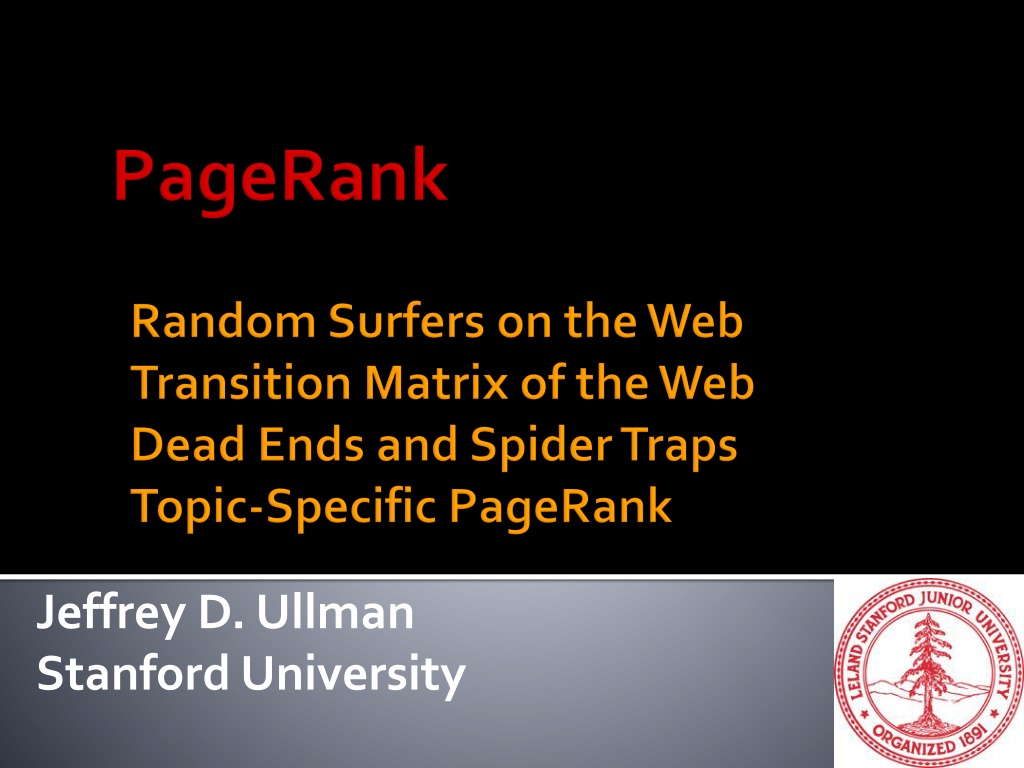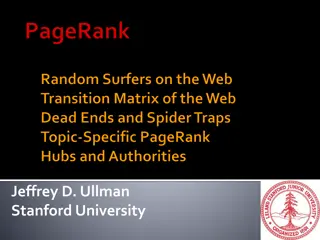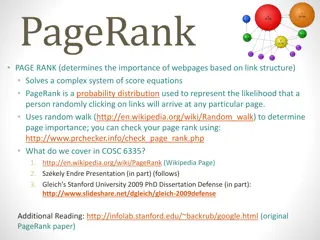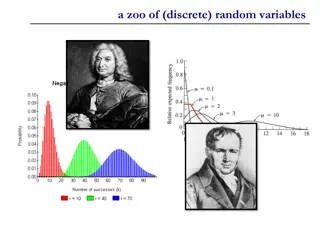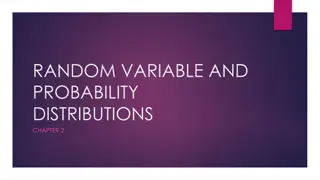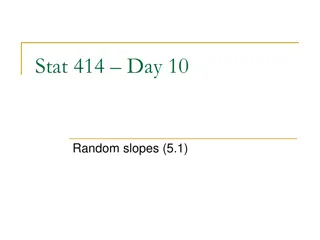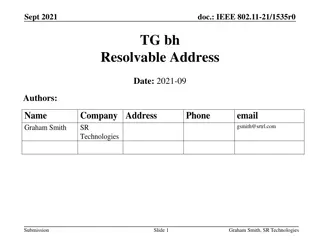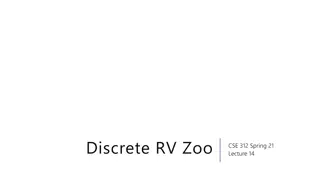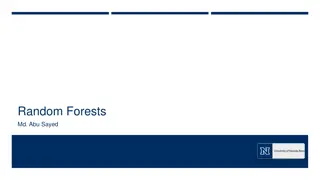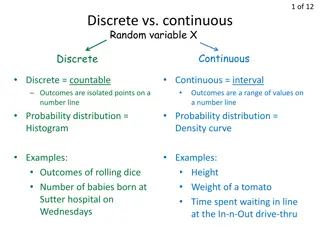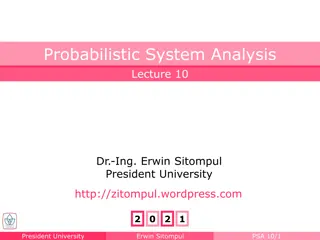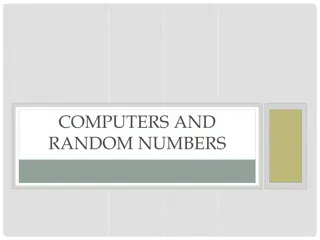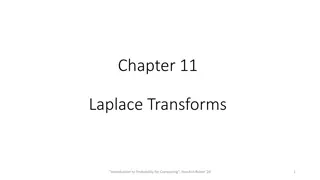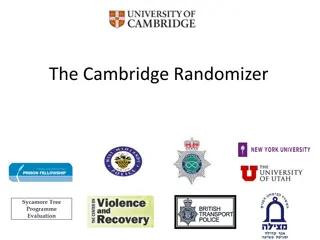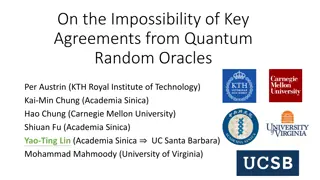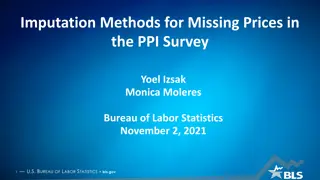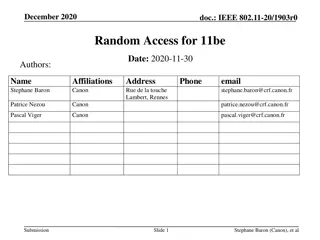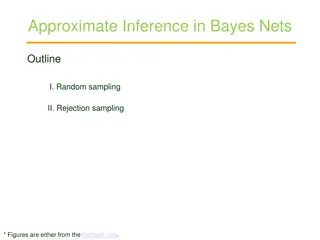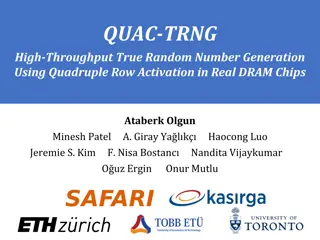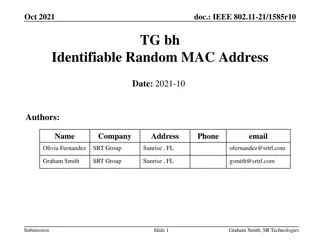Understanding PageRank and Random Surfer Model
Explore the concepts of PageRank and the Random Surfer Model through the importance of web pages, recursive equations, transition matrices, and probability distributions. Learn how page importance is determined by links from other important pages and how random surfers navigate the web.
Download Presentation

Please find below an Image/Link to download the presentation.
The content on the website is provided AS IS for your information and personal use only. It may not be sold, licensed, or shared on other websites without obtaining consent from the author. Download presentation by click this link. If you encounter any issues during the download, it is possible that the publisher has removed the file from their server.
E N D
Presentation Transcript
Jeffrey D. Ullman Stanford University
Weve had our first HC cases. Please, please, please, before you do anything that might violate the HC, talk to me or a TA to make sure it is legitimate. It is much easier to get caught than you might think. 2
There were a number of people who failed to upload code or HW answers properly and received no credit. Also, some people followed general SCPD directions, which you must not do in the future. We made some exceptions, e.g., allowing late code uploads. But in the future, please do not expect these sorts of exceptions to be made. 3
Web pages are important if people visit them a lot. But we can t watch everybody using the Web. A good surrogate for visiting pages is to assume people follow links randomly. Leads to random surfer model: Start at a random page and follow random out-links repeatedly, from whatever page you are at. PageRank = limiting probability of being at a page. 4
Solve the recursive equation: a page is important to the extent that important pages link to it. Equivalent to the random-surfer definition of PageRank. Technically, importance = the principal eigenvector of the transition matrix of the Web. A few fixups needed. 5
Number the pages 1, 2, . Page i corresponds to row and column i. M [i, j] = 1/n if page j links to n pages, including page i ; 0 if j does not link to i. M [i, j] is the probability we ll next be at page i if we are now at page j. 6
Suppose page j links to 3 pages, including i but not x. j i 1/3 x 0 7
Suppose v is a vector whose ith component is the probability that a random walker is at page i at a certain time. If a walker follows a link from i at random, the probability distribution for walkers is then given by the vector Mv. 8
Starting from any vector u, the limit M (M ( M (M u) )) is the long-term distribution of walkers. Intuition: pages are important in proportion to how likely a walker is to be there. The math: limiting distribution = principal eigenvector of M = PageRank. Note: because M has each column summing to 1, the principal eigenvalue is 1. Why? If vis the limit of MM Mu, then v satisfies the equations v = Mv. 9
y a m Yahoo y 1/2 1/2 0 a 1/2 0 1 m 0 1/2 0 Amazon M soft 10
Because there are no constant terms, the equations v = Mv do not have a unique solution. In Web-sized examples, we cannot solve by Gaussian elimination anyway; we need to use relaxation (= iterative solution). Works if you start with any nonzero u. 11
Start with the vector u= [1, 1,, 1] representing the idea that each Web page is given one unit of importance. Note: it is more common to start with each vector element = 1/n, where n is the number of Web pages. Repeatedly apply the matrix M to u, allowing the importance to flow like a random walk. About 50 iterations is sufficient to estimate the limiting solution. 12
Equations v= Mv: y = y /2 + a /2 a = y /2 + m m = a /2 Note: = is really assignment. y a = m 1 1 1 1 3/2 1/2 5/4 1 3/4 9/8 11/8 1/2 6/5 6/5 3/5 . . . 13
Yahoo Amazon M soft 14
Yahoo Amazon M soft 15
Yahoo Amazon M soft 16
Yahoo Amazon M soft 17
Yahoo Amazon M soft 18
Some pages are dead ends (have no links out). Such a page causes importance to leak out. Other groups of pages are spider traps (all out- links are within the group). Eventually spider traps absorb all importance. 20
y a m Yahoo y 1/2 1/2 0 a 1/2 0 0 m 0 1/2 0 Amazon M soft 21
Equations v= Mv: y = y /2 + a /2 a = y /2 m = a /2 y a = m 1 1 1 1 1/2 1/2 3/4 1/2 1/4 5/8 3/8 1/4 0 0 0 . . . 22
Yahoo Amazon M soft 23
Yahoo Amazon M soft 24
Yahoo Amazon M soft 25
Yahoo Amazon M soft 26
Yahoo Amazon M soft 27
y a m Yahoo y 1/2 1/2 0 a 1/2 0 0 m 0 1/2 1 Amazon M soft 28
Equations v= Mv: y = y /2 + a /2 a = y /2 m = a /2 + m y a = m 1 1 1 1 1/2 3/2 3/4 1/2 7/4 5/8 3/8 2 0 0 3 . . . 29
Yahoo Amazon M soft 30
Yahoo Amazon M soft 31
Yahoo Amazon M soft 32
Yahoo Amazon M soft 33
Tax each page a fixed percentage at each iteration. Add a fixed constant to all pages. Optional but useful: add exactly enough to balance the loss (tax + PageRank of dead ends). Models a random walk with a fixed probability of leaving the system, and a fixed number of new walkers injected into the system at each step. Divided equally among all pages. 34
Equations v = 0.8(Mv) + 0.2: y = 0.8(y/2 + a/2) + 0.2 a = 0.8(y/2) + 0.2 m = 0.8(a/2 + m) + 0.2 y a = m 1 1 1 1.00 0.60 1.40 0.84 0.60 1.56 0.776 0.536 1.688 7/11 5/11 21/11 . . . 35
Goal: Evaluate Web pages not just according to their popularity, but also by how relevant they are to a particular topic, e.g. sports or history. Allows search queries to be answered based on interests of the user. Example: Search query [jaguar] wants different pages depending on whether you are interested in automobiles, nature, or sports. 37
Assume each walker has a small probability of teleporting at any tick. Teleport can go to: 1. Any page with equal probability. As in the taxation scheme. 2. A set of relevant pages (teleport set). For topic-specific PageRank. 38
Only Microsoft is in the teleport set. Assume 20% tax. I.e., probability of a teleport is 20%. 39
Yahoo Dr. Who s phone booth. Amazon M soft 40
Yahoo Amazon M soft 41
Yahoo Amazon M soft 42
Yahoo Amazon M soft 43
Yahoo Amazon M soft 44
Yahoo Amazon M soft 45
Yahoo Amazon M soft 46
1. Choose the pages belonging to the topic in Open Directory. 2. Learn, from a training set, the typical words in pages belonging to the topic; use pages heavy in those words as the teleport set. 47
Spam farmers create networks of millions of pages designed to focus PageRank on a few undeserving pages. We ll discuss this technology shortly. To minimize their influence, use a teleport set consisting of trusted pages only. Example: home pages of universities. 48
